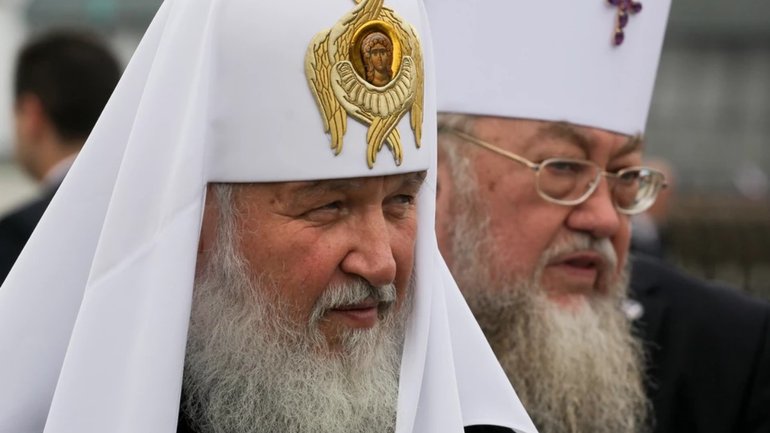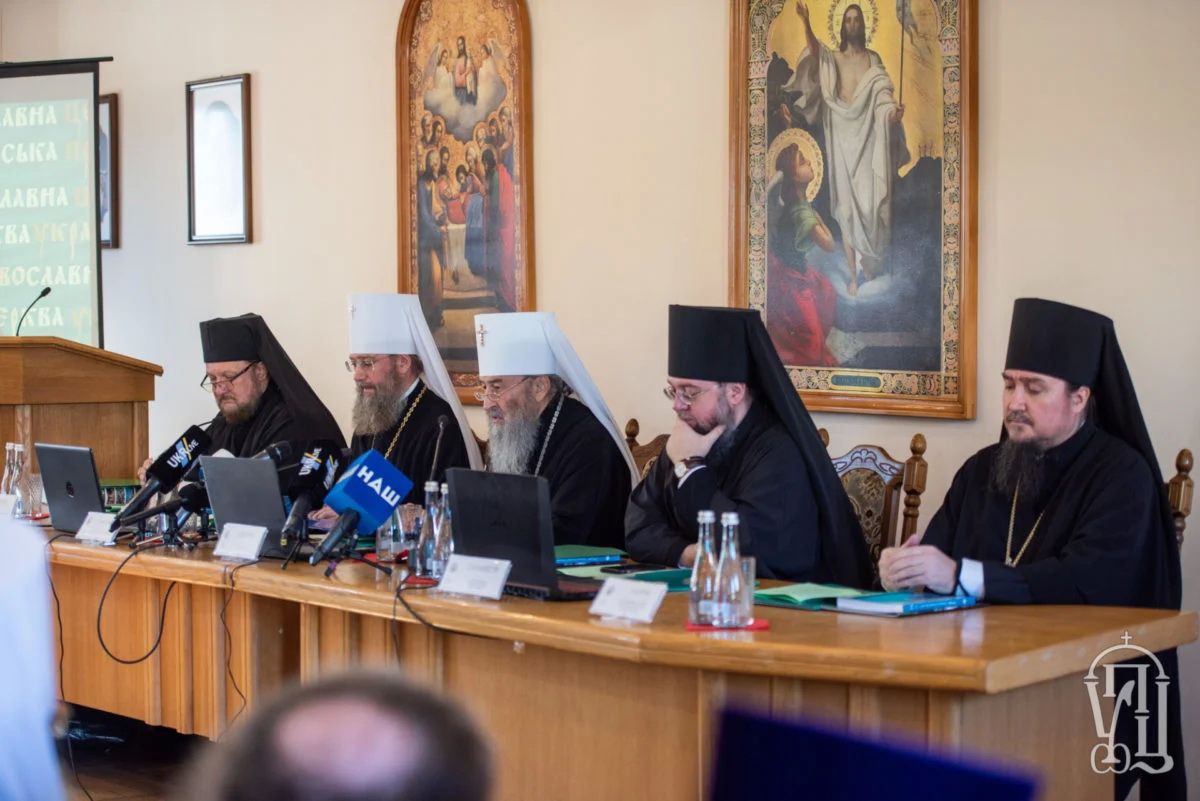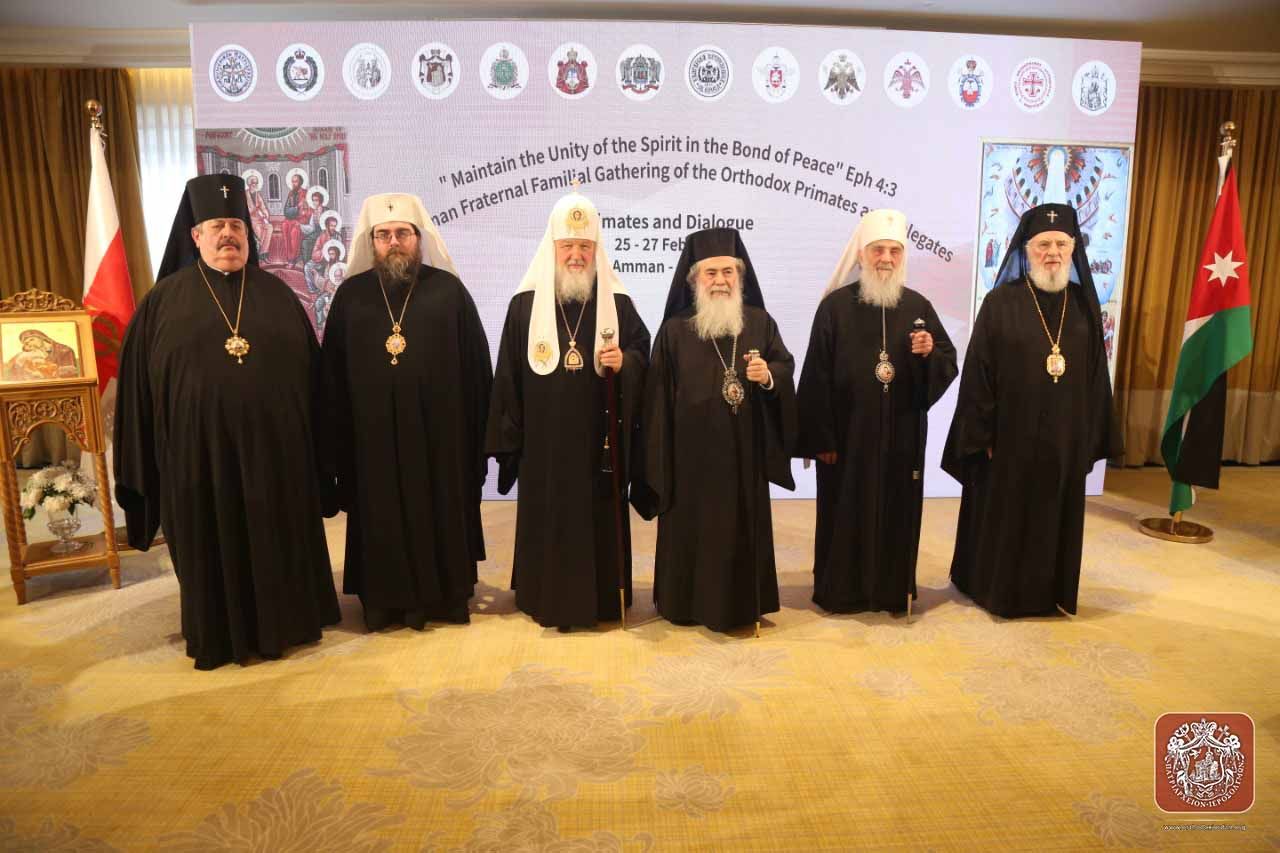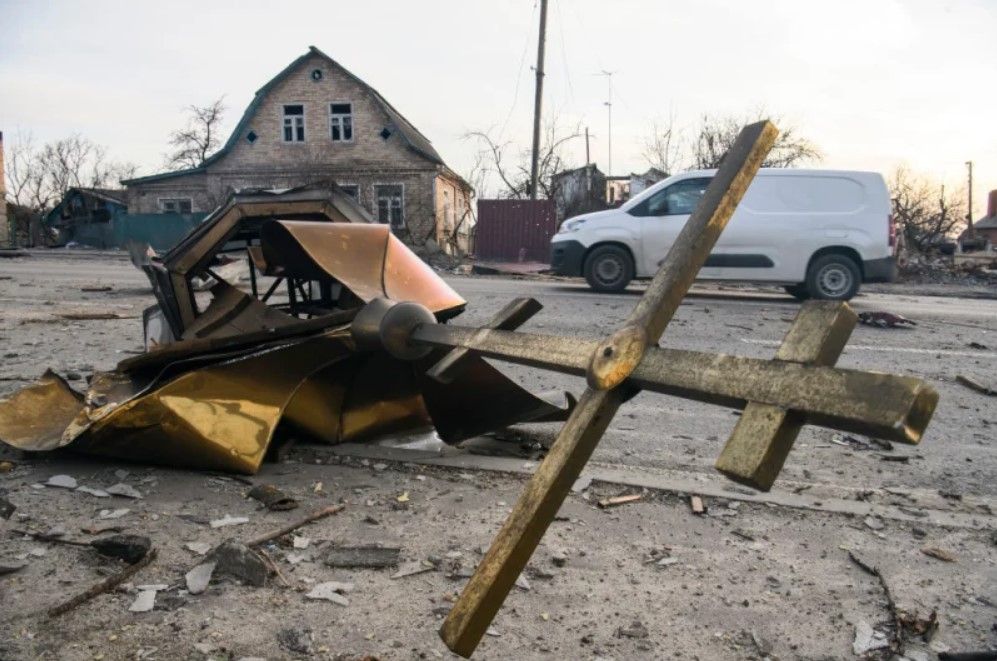Metropolitan Sava of Warsaw accuses Constantinople of creating divisions in Ukrainian Orthodoxy

Metropolitan Sava Hrycuniak, in his self-presentation during the interview, would like to be seen as rising above political divisions as a 'providential man'. However, the more he emphasises the separation between Church affairs and politics, the less credible this assumption sounds, especially from the mouth of the former collaborator of the communist secret services, bishop who openly supported the Polish Communist Party’s line during the martial law of 1981-83 (with the dozens of people killed and wounded, thousands arrested), retired brigadier general. The interview is saturated with statements by the Metropolitan downplaying the ‘infamous’ pages of his biography. We will never know the entirety of his agent dossier, including his ties to the KGB because some of the documents were destroyed by General Czeslaw Kiszczak's team: perhaps in gratitude for this, Sava permitted the Orthodox burial of this atheist with the stigma of a communist criminal (in the light of the surviving archives of the Institute of National Remembrance, Kiszczak, contrary to Sava's account, was not involved in blocking the formation of Orthodox youth organisations – the instructions in this matter were given by Colonel Lucjan Stasikowski, head of the 6th Division in the 4th Department of the Ministry of Internal Affairs). Contrary to what was suggested during the interview, Sava’s handwritten reports are preserved in folders left over from Secret Collaborator "Jurek's" operational work. Few remember that Hrycuniak was called a 'red bishop' on Radio Free Europe: it was, among other things, about the fact that he covered up, under the dictates of the Polish SB (Security Service), the unclear circumstances of the death of Orthodox priest Piotr Poplawski in 1985 – the Western press wrote about his murder. It is just one of the really numerous and serious indications justifying a summarily negative moral assessment of his actions.

One has the impression that the atmosphere of 'intimidating distance' built up by His Eminence from the very beginning of the conversation did not allow Katarzyna Kaczorowska to ask questions about the financial dependence of the Polish Autocephalous Orthodox Church on entities linked to the Russian Federation (e.g. Gazprom, Rosatom), the circumstances of the production in 2021 of a 44-minute film on Orthodoxy in Poland by the Rossiya-K TV channel, or, finally, why the Polish Orthodox Church, against the vast majority of the local Orthodox Churches, grants the right to autocephaly to the structures of the Moscow Patriarchate in the USA and Canada (Orthodox Church in America) on a privileged basis.
Sava's statement "we have no contacts with Moscow", pointing to 24th February, the day of the outbreak of war, as the supposed turning point in this matter, is not supported by reality, if only because the Church of Poland was represented in the Russian capital on 15-16th March this year at a scientific conference “God-Man-World” organised by the Moscow Patriarchate. Moreover, the interview remains evidence of such at least mental links, perpetuating in the eyes of the recipient the most stereotypical image of Orthodoxy in Poland. Not insignificant are also the sympathetic signals from Moscow itself: on 27th March, on the state TV channel Rossiya 24, the chairman of the Department of External Church Relations of the Moscow Patriarchate praised the Polish Orthodox Church's assistance to Ukrainian refugees – could it be because Russian parishes distributed these measures? There is also every indication that Patriarch Kirill, for some reason, has not at all taken umbrage at the Orthodox bishops of Poland for their condemnation of the war since he issued a communiqué on 31st May expressing “brotherly love” to Sava on the occasion of the 24th anniversary of his enthronement to the Metropolis of Warsaw. The Patriarch of Moscow does not address such congratulatory letters to everyone: it is not a pure courtesy, but the expression of an ongoing community of interest.
According to the Hierarch, the condition for granting autocephaly is the full unification of Orthodoxy in Ukraine. In the interview, he mentioned the 'confusion' associated with four hierarchs competing for spiritual supremacy over Kyiv and also noted that a certain non-canonical bishop has become active in Poland (it refers to the activity of a former clergyman of one such Ukrainian community in 2019-2020 in Lodz, currently forming a branch of Old Catholicism). In the face of such arguments, it should be noted that there are presently around 40 Orthodox communities in the Russian Federation, recognised by the local Orthodox Church as schismatic. Still, for Metropolitan Sava, this is no obstacle to recognising the authority of the one Patriarch of Moscow.
Given the crisis in Ukrainian Orthodoxy, Metropolitan Sava is calling for an assembly of all the heads of the local Orthodox Churches, echoing a suggestion first made in 2018 by Fr Alexander Volkov, spokesman for the Patriarch of Moscow. The last attempt to convene such consultations took place in 2020: however, only five delegations from Russia, Serbia, Romania, Poland, as well as the Czech Republic and Slovakia came to Amman at the invitation of Patriarch Theophilus of Jerusalem – most local Orthodox Churches boycotted the initiative, perceiving it as fully controlled by Patriarch Kirill.
Interestingly, a member of the Moscow delegation at this meeting, along with Kirill, was Metropolitan Onuphry Berezovsky – it is he who the Polish Orthodox Church supports, as evidenced by joint initiatives against the tomos of Ukrainian autocephaly, such as Archbishop Jerzy Pańkowski's paper at the Kyiv-Pechersk Lavra in November 2021 at a conference on the “crisis caused by the actions of the Patriarch of Constantinople” (compared to the so-called hybrid war), or the participation of MP Eugeniusz Czykwin, editor-in-chief of the Przeglad Prawoslawny (Orthodox Review), in a conference organised there in December 2021 criticising Ukrainian denominational legislation. For the sake of completeness, it should be added that the Ukrainian Orthodox Church, led by Metropolitan Onuphry Berezovsky, has recently undergone an organisational 'retouching', involving the removal from its statutes of direct references to links with the Russian Orthodox Church but essentially remains part of it within the privileges granted in 1990 by the Patriarch of Moscow. Berezovsky declined an invitation by Constantinople to participate in the unification synod that resulted in the creation of the Orthodox Church of Ukraine.
The main corpus delicti against the proclamation of full independence of Orthodoxy in Ukraine, however, is to be found in Metropolitan Sava's strongly manifested alleged invalidity of the episcopal ordination of Metropolitan Epiphanius of Kyiv (received from a bishop excommunicated by the Russian Church for attempting to become independent from Moscow). Due to the so-called economy of salvation, Orthodox canon law allows a rite performed outside the Orthodox Church to be recognised as a sacrament, provided it is correct. The application of this exception to the rule is purely discretionary and is also well known in the history of Orthodoxy, including the Moscow Patriarchate, e.g. the canonical union with the Russian Exile Church in 2007. The Patriarch of Constantinople, following this formula, recognised in 2018 as valid all previous ordinations given by the communities that make up today's Orthodox Church of Ukraine, especially since the earlier punishments had political overtones. On the other hand, Moscow adopted an interpretation favourable only to itself – the position of the Orthodox Metropolitan of Warsaw, presented in the pages of the Polityka, is fully consistent with it. The Head of the Polish Orthodox Church knows the principle of economy well, as he has been applying it for several decades to the recognition of baptism of other Christian denominations, even though it's debatable whether it is possible from a purely ceremonial point of view (baptism in the Orthodox Church is performed by triple immersion). Despite this ecumenical tinsel, Metropolitan Sava does not want to recognise any sacraments of the Orthodox Church of Ukraine. Therefore, the earlier assurances that the Ukrainian believers may enjoy all rights in Poland turned out to be insincere. Alongside this, it should be pointed out that an analogy built by Sava between the status of the Orthodox Church of Ukraine and the Lefebrists is absolutely inaccurate: the Roman Curia has never questioned the validity of the episcopal orders granted without canonical approval in 1988 by Archbishop Marcel Lefebvre, nor of further ordinations in the Fraternity of St. Pius X.

The interview also perpetuates another misrepresentation, present in the pro-Russian media, of ongoing unification talks between the Orthodox Church of Ukraine, recognised by Patriarch Bartholomew, and the Greek Catholic Church, concerning the Vatican's threat of proselytising. Projections of this kind only serve to foster mutual distrust and suspicion at a particularly difficult moment for the Ukrainian people, oppressed by the Russian onslaught. At the same time, one should look with great hope at all attempts to re-evaluate mutual religious resentments, leading, despite dogmatic differences, to the building of ever greater mutual respect, friendship and love. It is reprehensible to stir up historical and national resentments to make political capital out of them.
One could try to hope for greater moral sensitivity of the younger generation of bishops of the Polish Orthodox Church. Still, things are no better: Archbishop Grzegorz Charkiewicz, chaplain to the Brotherhood of Orthodox Youth in Poland (BMP), asked on 28th May by one of the participants in the youth pilgrimage to Grabarka whether Patriarch Kirill should not rather pray for the defeat of the army of the Russian Federation, instead of supporting the hostilities conducted by it, said: "The Patriarch did not ask me for advice. I don't know what the Patriarch should do." Amidst beautiful words about love and forgiveness, he suggested that God could only judge the patriarch at the Last Judgement. Archbishop Gregory compared the question itself to the provocations undertaken by the Pharisees. He referred to the "brotherly nations that are shedding blood today" as if there was a balance between the warring parties that did not allow for the identification of aggressor and victim. Other bishops, Archbishop Jerzy Pańkowski and Bishop Warsonofiusz Doroszkiewicz, listened to this, but neither of them added anything or engaged in any polemics.
At this point, it is also worth recalling the circumstances that did not rule out the declaration of full independence of the Orthodox Church of Poland in 1925: the negative stance of Moscow and the majority of diocesan congresses of the Orthodox Metropolis of Warsaw, the protest of some Orthodox bishops against the synodal resolution of 1922, the criticism of Russian émigré bishops, and, finally, the assassination of Metropolitan Jerzy of Warsaw in 1923 by an opponent of the autocephaly. With respect and humility for this difficult history, the Orthodox Church of Poland should provide unfailing support to its younger Ukrainian Sister and love the Constantinopolitan Mother Church. I would be wrong to point out that Metropolitan Sava and the other Orthodox bishops in Poland have chosen a different path.

The author is the Head of the Prognostic Research Centre on Religious Changes and Deputy Director of the Institute of Philosophy at the University of Wroclaw, Expert of the Centre for Doctrine and Training of the Polish Armed Forces in the NUP 2X35 Campaign.









